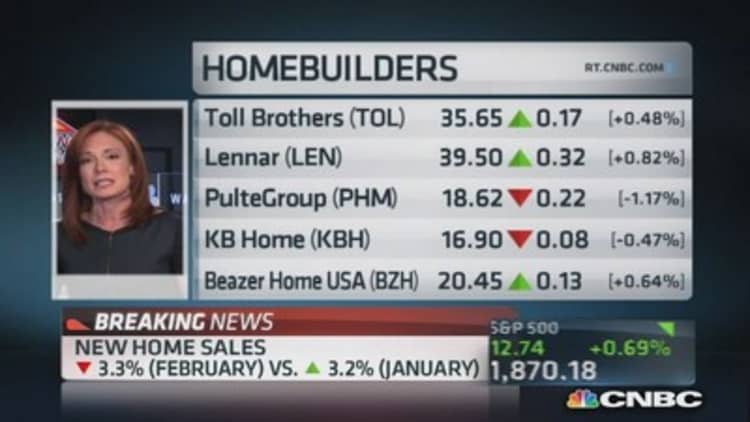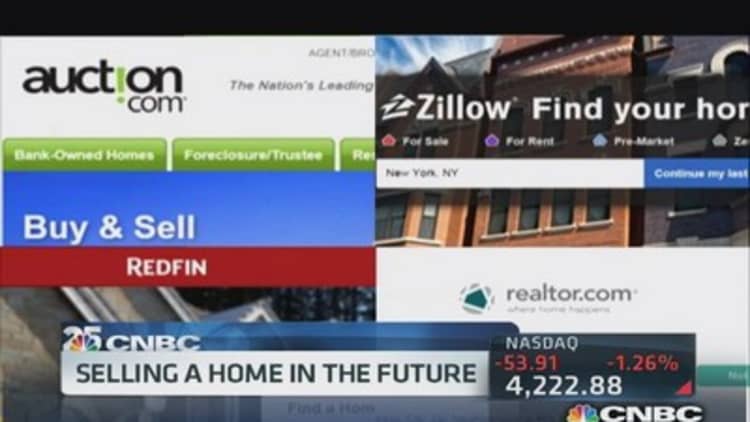At face value it doesn't make a lot of sense. Sales of existing homes have declined in six of the last seven months, and sales of newly built homes are still running at less than half the pace of historical norms.
Read MoreWhat your home might look like in the future
Home prices, however, continue to rise. They are rising so far, so fast in some markets that several analysts are now crying "bubble!" while others contend homes are still largely undervalued.
"Analyzing home price levels relative to fundamental prices leads us to conclude that there is no need to fear a bubble for at least a few years to come, if at all," say researchers at CoreLogic, who base their thesis on the fact that recent house price appreciation is a result of a market correction for houses being undervalued since the housing crash.

Home prices were more than 13 percent higher in January than a year ago, according to the S&P/Case-Shiller Home Price Indices. Prices are still, however, about 20 percent lower than their peak in the summer of 2006.
Read MoreHouses are about to get really, really smart
"The 13.2 percent increase in the 20-city index really isn't driven by individual homebuyers and their excitement," said Robert Shiller on CNBC's "Squawkbox." "Homebuyers don't expect much."
Read MoreHow we will live: More green, more urban, more efficient
A survey by the New York Federal Reserve shows homebuyers expect home prices to rise only about 4 percent.
The big gains we see are driven by all-cash investors in formerly distressed markets. That is where the bulk of the buying and selling activity has been over the past two years. That is why another survey from Trulia says home prices are "overvalued" in 19 of the top 100 U.S. markets. Eight of those are in California. Trulia now has a "bubble watch" on its site.

Nationally, however, Trulia analysts say homes are still undervalued by 5 percent compared with long-term fundamentals, which include historical prices, incomes and rents. There is also no question that rising mortgage rates and the still-tight leash on credit will keep potential buyers from being able to drive up home prices dramatically on their own.
While some cities, like San Francisco, can be considered in a bubble, mostly due to incredibly low inventories, home prices are in fact moderating in general. Inventories are expanding, as warmer weather finally brings sellers on to the spring market. Distressed sales are slowing, which is putting the brakes on the huge price jumps in markets like Phoenix, Las Vegas and Tampa, Fla.
Read MoreWill the American Dream still include owning a home?
"Prices have been growing at gangbuster rates for nearly a year. The slowdown, which was expected, is in line with underlying fundamentals," notes Patrick Newport of IHS Global Insight. "It will help empower buyers to purchase existing homes, thereby fueling residential investment."
—By CNBC's Diana Olick. Follow her on Twitter @Diana_Olick.


